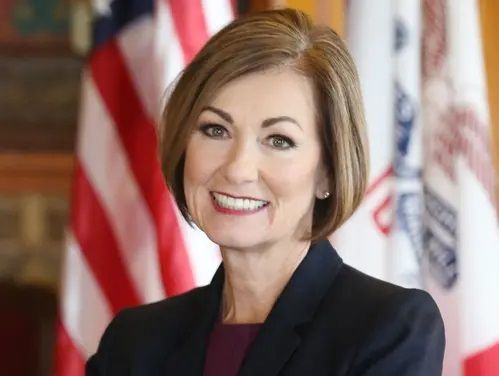Iowa governor signs bill that boosts funding for renewable fuel infrastructure program

Iowa Gov. Kim Reynolds
May 13, 2024
BY Erin Voegele
Iowa Gov. Kim Reynolds on May 9 signed legislation that, in part, boosts funding for the state’s renewable fuel infrastructure program that helps retail fuel stations install equipment to supply higher blends of ethanol and biodiesel.
The bill, HF 26914, was introduced in April. The version of the bill that became law was passed by the Iowa Senate on April 19 by a vote of 47 to zero. The Iowa House passed the bill by a vote of 57 to 35 the same day.
According to the Iowa Biodiesel Board, the bill increases annual funding for the Iowa Renewable Fuel Infrastructure Program from $10 million to $14 million, effective July 1. The bill specifically allocates the funding for biodiesel and ethanol products.
“This continued significant IRFIP funding underscores Iowa's dedication to fostering a sustainable and environmentally conscious energy landscape,” said Grant Kimberley, executive director of the IBB "The more infrastructure we have available, the more biodiesel is accessible to consumers and utilized in the market."
Advertisement
Advertisement
According to the IBB, the revised program guidelines include an increase in the cap for retail biodiesel projects, now set at $1.75 million compared to the previous $1.25 million. This adjustment results in an additional $500,000 annually allocated to retail biodiesel projects.
A full copy of the IBB’s statement is available on the organization’s website.
Advertisement
Advertisement
Related Stories
The USDA has announced it will delay opening the first quarterly grant application window for FY 2026 REAP funding. The agency cited both an application backlog and the need to disincentivize solar projects as reasons for the delay.
CoBank’s latest quarterly research report, released July 10, highlights current uncertainty around the implementation of three biofuel policies, RFS RVOs, small refinery exemptions (SREs) and the 45Z clean fuels production tax credit.
The U.S. EPA on July 8 hosted virtual public hearing to gather input on the agency’s recently released proposed rule to set 2026 and 2027 RFS RVOs. Members of the biofuel industry were among those to offer testimony during the event.
The USDA’s Risk Management Agency is implementing multiple changes to the Camelina pilot insurance program for the 2026 and succeeding crop years. The changes will expand coverage options and provide greater flexibility for producers.
President Trump on July 4 signed the “One Big Beautiful Bill Act.” The legislation extends and updates the 45Z credit and revives a tax credit benefiting small biodiesel producers but repeals several other bioenergy-related tax incentives.
Upcoming Events










